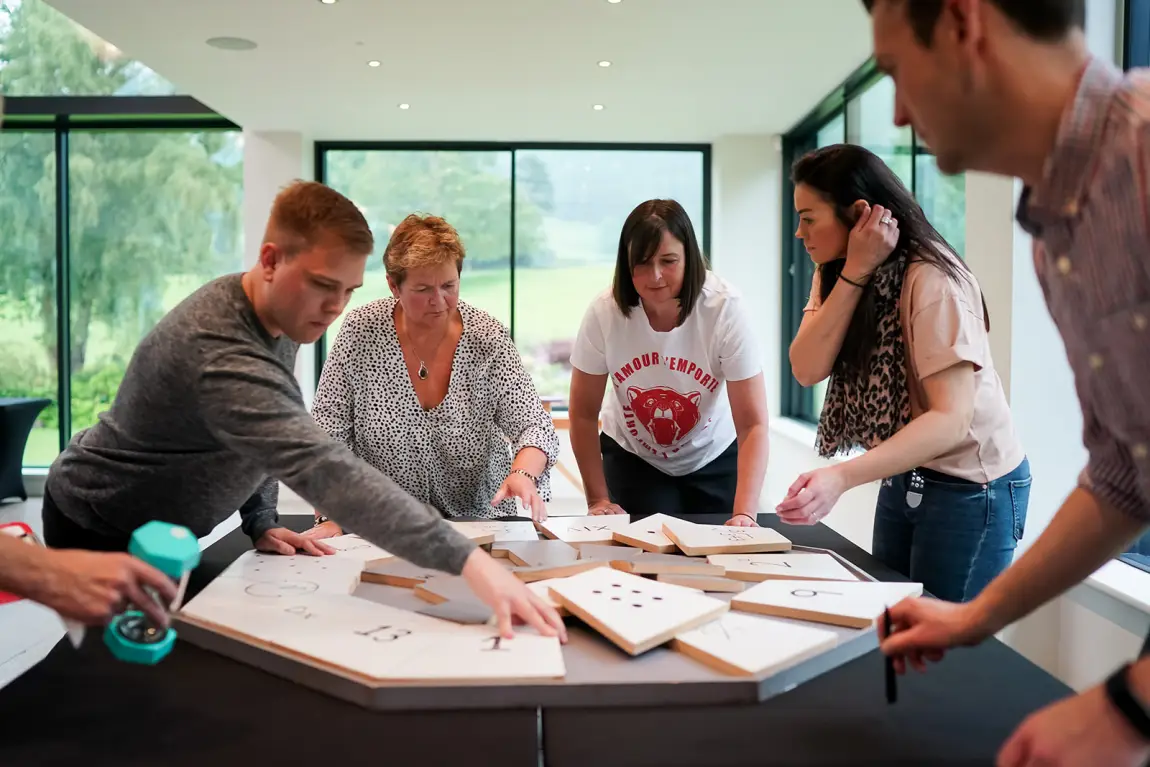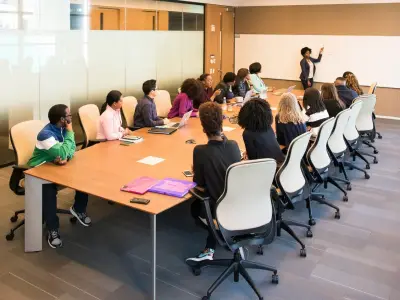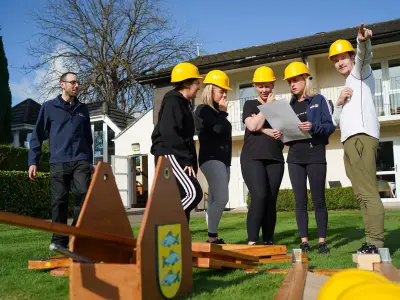
Running team-building events is partly an exercise in facilitation.
Years of experience have given us at Events Made Simple the knowledge to know when to step in and when to let the group progress on its own.
But what is effective facilitation, what is it useful for, and how do you learn to facilitate effectively?
Facilitation is defined as the act of helping other people deal with a process or reach an agreement or solution, without getting directly involved in the process or discussion.
It comes from the Latin facilis, meaning ‘easy’. The facilitator's role is to make things easy and support the group in progressing towards its goals.
The facilitator oils the cogs of conversation, manages conflict, increases participation and engagement, but doesn’t express their own opinion or bring their own ideas into the discussion.
One of the key areas where facilitation can be vitally important is in meetings.
We’ve all sat in meetings that don’t go anywhere, that are dominated by one or two voices, or could have simply been dealt with by email.
An effective facilitator builds rapport, encourages involvement, breaks down communication barriers and stimulates collaboration.
In short, they make it worth attending the meeting.
When people feel heard and respected, they're more likely to share ideas and take risks. This feeling of psychological safety sparks creativity and innovation.
A skilled facilitator can help a team tap into its collective intelligence, solving problems and finding solutions that might not have been obvious to individuals.
It's like assembling a puzzle where everyone brings a piece to the table.
In the context of a meeting, there are a variety of actions and techniques that come into play.
This work starts long before the meeting.
A professional facilitator will:
But facilitation is more than just running meetings …
Facilitation skills can come in useful in a range of circumstances, but you don’t need to be a professional facilitator to utilise those skills. As with any skill, practice makes perfect.
Whether in a brainstorming session, problem-solving meeting, or a team-building exercise, good facilitation can make a significant difference to the quality of the outcome.
The list of skills that a facilitator might need to draw on is extensive, but the most important, in our opinion, are these:
Asking the right questions is a key skill in facilitation. We all know that to get useful answers, you need to ask open questions. So, questions that start with ‘what’, 'why', and ‘how’ are particularly useful.
You can also use phrases such as ‘Tell me about…’, 'Describe…', or ‘Explain to me…’ to encourage fuller, more complete answers.
The importance of facilitation skills for line managers cannot be overstated. A line manager will often have to manage a range of personalities and facilitate a variety of processes.
As a line manager, it can be difficult to remove yourself from a process entirely, but some positive steps you can take are:
These skills can be useful in team meetings as tools to help develop team cohesion, or in performance reviews to engage an individual's involvement and buy-in.
But, a line manager’s most vital use of their facilitation skills is often in managing conflict within their team.
Conflict happens in most workplaces, but how it's handled can make or break a team.
Facilitators excel at managing conflict by creating a safe space for open dialogue. Managed conflict can be a really good thing, as this is often where the best ideas come from.
A good facilitator will help team members understand each other's viewpoints, mediate disagreements, find compromises, and move forwards together.
By defusing tensions and strengthening collaboration, great facilitators can cultivate a positive and productive work environment.
In addition to managing conflict, facilitators play a crucial role in decision making.
They can structure discussions to ensure all options are considered, and help a group reach a consensus that everyone can support.
By guiding the process and making sure everyone's voice is heard, facilitators empower teams to make informed and effective decisions.
Ultimately, facilitation is about building relationships and creating a sense of community within a workplace. Facilitators can help teams achieve their goals and reach their full potential.
Whether you're leading a small team or a large organisation, the ability to bring people together and harness their collective energy is invaluable.
It's not just about getting things done; it's about doing them well, together.
That’s why the importance and value of good facilitation skills are increasing in the workplace every year.
Why not let us facilitate your next team building event?
Get a quote now and you'll be able to see a range of options and prices for your next event, meeting or conference.

1st October, 2024
Psychological safety at work is a key factor for an organisation's success, employee well-being, and productivity. A psychologically safe workplace means employees feel…

2nd September, 2024
Meetings and conferences are both gatherings of people with a shared purpose - normally that of sharing or disseminating information. However, they serve distinct roles…

23rd July, 2024
Team cohesion should be the goal for any people manager wanting to achieve high performance and smash their targets. Without a cohesive team, business goals can be diffi…